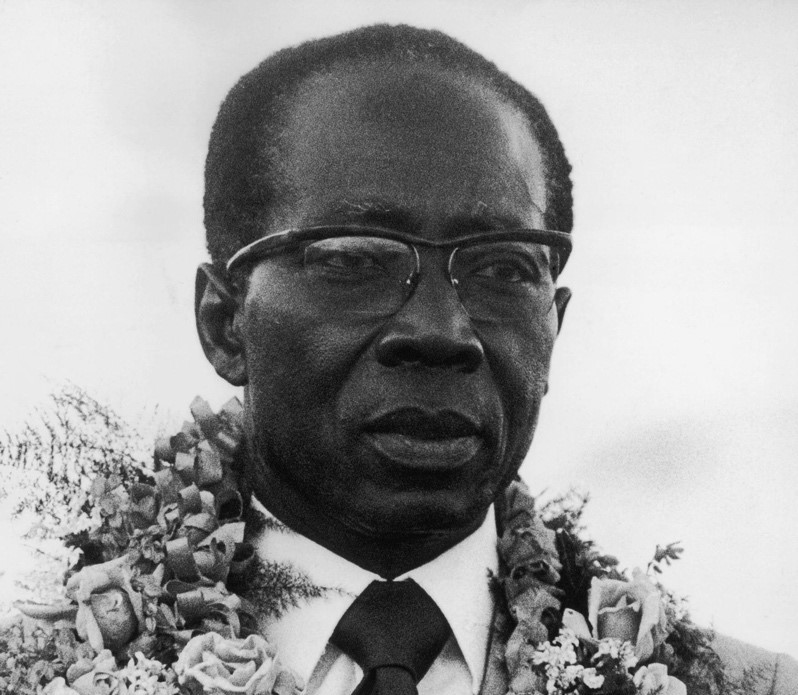Friday Poetry - LÉOPOLD SÉDAR SENGHOR’S CONCEPT OF NEGRITUDE: THE CONSCIOUSNESS AMONG NIGERIANS
By Saheed Sunday
The idea of Negritude as it has been propounded by Leopold Sedar Senghor didn’t sprout from nowhere. In fact, anything related to literature doesn’t just come from a vacuum, an empty space; it is the result of particular experiences. In this case, the Negritude experience dates back to the Harlem Renaissance which was associated with writers like Langston Hughes and Claude McKay. As it were, the idea of Negritude could be said to have been influenced by the works of Claude McKay who published Banjo, a picaresque novel that influenced Senghor. The gist of the novel centres on the portrayal of how the French treated Black colonials. This is probably why Senghor had called McKay the “true inventor of the values of] Negritude.” Having said all of these, it is pertinent to bring into focus the definition of Negritude.
Leopold Sedar Senghor defines Negritude as “the sum of the cultural values of the black world as they are expressed in the life, the institutions, and the works of black men”. This is to say that he believes that there are specific values that connect black people no matter the geographical location. These values include our history, with the horrors of the colonial experiences that came with it. Simply put, the ideology of Senghor is that “Africans, too, have a certain way of conceiving life and of living it”, and no matter how I look at it, I agree with the concept. It is right to say that the literature of a people reflects the environment they live in. To draw from the literature of different African cultures starting with Nigeria, one will notice how the beauty of the Igbo culture was heavily foregrounded through the use of drums, dances, and songs in Chinua Achebe’s Things Fall Apart and Akachi Adimora-Ezeigbo’s The Last of The Strong Ones. The same motifs of drums, dances, and songs (which can be referred to as performative arts) were again foregrounded in Wole Soyinka’s Death and The King’s Horseman, Niyi Osundare’s Village Voices, and Femi Osofisan’s Women of Owu to reflect the Yoruba culture. Outside Nigeria, one can see these same motifs in Mongo Beti’s The Poor Christ of Bomba and Jose Luandino Vieira’s The Real Life of Domingos Xavier. This insinuates is that there is a connecting factor between all Black people. That connecting factor is the consciousness of our defined cultures.
In Leopold Sedar Senghor’s “Negritude: Humanism of The Twentieth Century, he mentioned how the ethnologist have often praised “the unity, the balance, and the harmony of African civilization, of black society, which was based both on the community and on the person”. When I read this, I became conscious of Africans’ idea of communal responsibility. That is, in a typical African community, everybody is everybody’s business. On 25th May, 2020 when George Floyd was murdered by white policemen, it is noteworthy to mention the multitude of black people across the world that were agitated by this. That is far-fetched. Let me come back to Nigeria, and make my reference to the Nigerian music star, Ilerioluwa Oladimeji Aloba (Mohbad), who had recently died. Immediately it came to people’s notice that his death seemed to have a lot of questions attached to it, Mohbad’s death became every Nigerian’s responsibility. So to say, this is the culture of a typical African – to be communally involved in another African’s business. That is what characterizes our consciousness. And even though the concept of Negritude sprang up around the 1930’s, one can still see the truth in Senghor’s ideology.

Saheed Sunday, NGP V, is a Nigerian poet, a Star Prize awardee, a Best of the Net nominee, and a HCAF member. He is the author of a poetry collection: Rewrite The Stars. He won the ZODML Poetry Prize; he was shortlisted for the Rachel Wetzsteon Chapbook Award, Wingless Dreamer Poetry Prize and The Breakbread Literacy Project.





